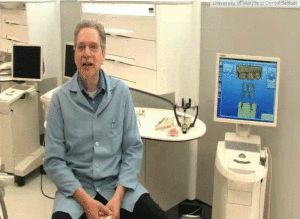WASHINGTON — Add one more item to the list of health issues facing diabetics.
The Centers for Disease Control and Prevention says diabetics are far more likely to lose teeth than non diabetics.
The CDC quotes data from an analysis of national data from 1971-2012 conducted by researchers at Duke University. They found that while tooth loss among the general population declined during that period, it remained more common in people with diabetes.
The numbers show diabetics lose twice as many teeth as non diabetics. African Americans with diabetes were especially hard hit, losing more teeth than white and Hispanic diabetics.

The Duke researchers say poor oral health may be to blame. But one local expert has a different theory.
Dr. Gary Hack is a dentist, a diabetic and a professor at the University of Maryland School of Dentistry, and says there is a gum disease link that can contribute to diabetics’ tooth loss.
“Diabetics have two to three times the incidence of gum disease,” he says, noting severe periodontal problems can ultimately lead to tooth loss.
The link between gum disease and diabetes is strong, and Hack has launched a program at the dental school that teaches dentists-in-training how to recognize signs of the disease and deal with the special challenges of treating diabetic patients.
They range from how and when to use a blood sugar meter during a long procedure to check for potentially dangerous blood sugar fluctuations, to the importance of checking blood pressure, since diabetics can also have hypertension.
But equally crucial is being able to look at the mouth, detect early indications of the disease and refer the patient to a physician.
“There are a number of studies coming out that show in a year, many patients may see their dentist and not their physician — so dentists are really going to play a key role in this,” says Hack.
The University of Maryland is one of a handful of dental schools in the country offering training in the diabetes-dental link. Hack says he doesn’t know of a single program that is as extensive as the one at U.Md.





